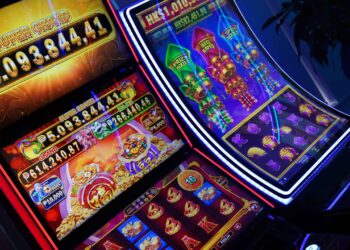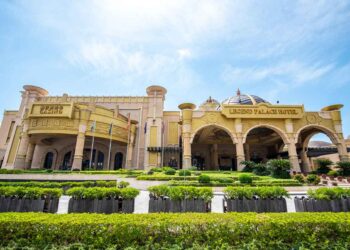A proposed increase in the share percentage required to be held in Macau’s gaming concessionaires by locals would likely prove counter-productive, effectively limiting foreign investment and benefiting only a privileged minority of locals, according to Macau-based MdME Lawyers.
In the third of a series of papers by MdME exploring proposed amendments to Macau’s gaming law, Carlos Eduardo Coelho, Rui Filipe Oliveira and Rui Pinto Proença warn the imposition of such a revision could in fact harm the Macao SAR Government’s own stated goal of “centralizing the development of their business in Macau, facilitating the Macao SAR Government knowledge and effective verification of the suitability of the related shareholders.”
This, they say, could be a result of expanding local interest over the management expertise and financial resources of foreign shareholders, impacting the listing of existing or future casino operations, by forcing changes to the shareholding structure of concessionaires and by limiting shareholding to a select minority of local residents who have the financial resources to purchase an economic interest.
Under current Gaming Law 16/2001, casino concessionaires are required to delegate management to a Managing Director who must be a Macau permanent resident and hold 10% or more of the company’s share capital. The idea, when written into law 20 years ago, was to ensure a local person would have a real economic interest in the growth and sustained development of the business.
However, there are no limitations to the type or category of shares the Managing Director must hold and as such their holdings tend to be notional: they typically do not hold a stake in the listed entity and are therefore nor granted the full spectrum of a concessionaire’s voting rights and entitlements.
Where proposed amendments to the gaming law remain unclear are whether the 10% minimum requirement will be raised, whether the mandatory holding would be dispersed among a greater number of Macau residents and, most importantly, whether it would be required to translate into real voting rights.
According to MdME, considerations around these factors, specifically the potential impact on foreign investment and whether they would truly benefit Macau locals, “question the very need to impose a minimum threshold for local shareholders, as well as the purposes and effectiveness of such requirement.
“In fact, the objective consequence of the proposal translates into a limitation to overseas ownership,” the MdME team writes.
“Determining that a minimum percentage of the share capital must be held by Macau residents means that a lower percentage is available for investors from outside the region, including from Hong Kong and Mainland China.
“Macau’s economy has historically been open to overseas investment without any restrictions. This has been a practical inevitability due to Macau’s limited territory, population and resources. As in many other industries, the transformation of Macau’s gaming and tourism industries was only possible due to the importation of business models, expertise and capital from abroad. Its success is self-evident. These factors are also inevitably necessary to establish Macau as a world center of leisure and entertainment.
“If the policy objective that motivates this proposal is the enhancement of scrutiny over the shareholders of the concessionaires, we note that the gaming industry is already heavily regulated, and the Government holds significant legal (and practical) power over concessionaires and its shareholders.
“As per the measures proposed in the consultation paper, the Government is simultaneously considering both the increase of its supervising role and the reduction of the concession term. In this scenario, the concessionaires are and will be subject to a tight and continuous monitoring of their suitability, performance as well as to periodical reviews resulting from their need to retender at the term of their contracts. These measures already provide a very significant level of control over overseas (as well as domestic) investment.”
Instead, MdME proposes an alternative solution, particularly if the policy objective of the government is to rebalance the gaming concessionaires’ executive powers and shift towards a centralized decision-making process in Macau.
In this case, “the natural way forward would be to implement a higher ratio of resident directors,” they suggest.
“That could be achieved, for instance, with the creation of an executive committee with a number of members that are permanent residents and effectively domiciled in the SAR. This would impose that board and executive committee meetings would have to be held locally, establishing Macau as their effective base of operations.
“Such mechanism, if combined with corporate governance requirements of international standard, would contribute not only to localize but also to improve the management of casino concessionaires.”
At the final in-person public consultation session held by the Macau Gaming Inspection and Coordination Bureau (DICJ) as part of the ongoing public consultation process into the revision of Macau Gaming Law, the DICJ strongly implied no changes were planned to the application of local share capital requirements with regard to economic interest or voting rights, but did ask the public for opinions on the level of increase which should occur above the current 10%.”

































